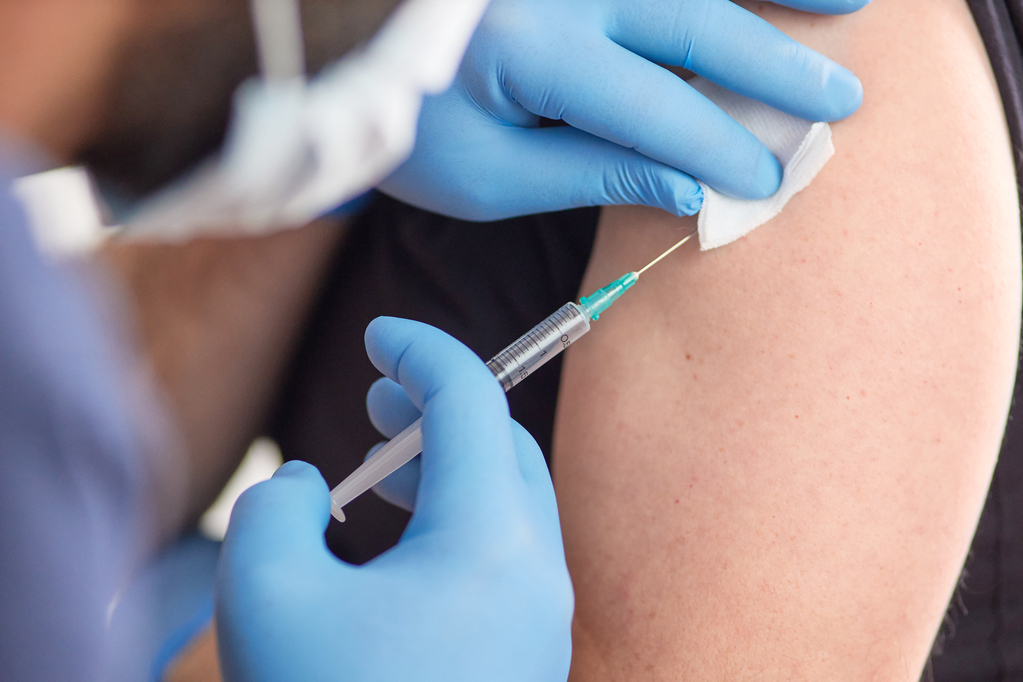The European Region has seen a tripling of new COVID-19 cases over the past six weeks, with close to three million new cases reported last week, accounting for nearly half of all new cases globally.
WHO Regional Director for Europe, Dr Hans Henri P. Kluge, said in a statement on Tuesday that while hospitalisation rates due to COVID-19 have doubled in the same period, ICU admissions have so far remained relatively low. However, as infection rates in older groups continue to rise, Europe is still seeing close to 3,000 people die of COVID-19 every week.
“It’s now abundantly clear we’re in a similar situation to last summer – only this time the ongoing COVID-19 wave is being propelled by sub-lineages of the Omicron variant, notably BA.2 and BA.5, with each dominant sub-lineage of Omicron showing clear transmission advantages over the previously circulating viruses,” he said.
The situation is likely to become worse in the autumn and winter months as schools re-open, people return from holidays, and social mixing moves indoors with the onset of colder weather. To help prepare for the coming waves of infection, WHO/Europe released its autumn/winter strategy for COVID-19 and other respiratory viruses. “Waiting for the autumn to act will be too late.”
The strategy calls on countries to re-launch previous mitigation efforts and be ready to respond to an increased burden on their healthcare systems. The consistent application of the following five pandemic stabilisers will continue to be critical to protect people this autumn and winter:
- Increasing vaccine uptake in the general population,
- Administering a second booster dose to immunocompromised people aged 5 and above and their close contacts, and consider offering a second booster to specific at-risk groups, at least three months after their last dose,
- Promoting mask-wearing indoors and on public transportation,
- Ventilating crowded and public spaces (such as schools, offices, and public transport), and
- Applying rigorous therapeutic protocols for those at risk of severe disease.
COVID-19 knocked me off
COVID-19 remains a nasty and potentially deadly illness. Dr Kluge told how he recently was struck down with the virus for the first time.
“It knocked me off my feet. I spent three awful days and nights with high fever, shivers, and shortness of breath. I can only imagine how bad it would have been had I not been fully vaccinated and received my additional dose. I recovered at home, in isolation, with my family nearby to keep an eye on me.
“I didn’t need hospitalisation or treatment,” he added. “The vaccine-induced antibodies in my immune system set to work and fought off the infection. My advice to everyone who gets infected is to take it easy. Just because your symptoms have ceased does not necessarily mean you have fully recovered. And when you do return to your normal routine, do it gradually, if at all possible.”
Risk of long COVID
Repeated infections with SARS-CoV-2 are occurring due to the continued evolution of the virus, and each new infection could lead to long COVID, he warns. In the United Kingdom alone, for example, an estimated two million people – 3% of the population – suffer from long COVID.
Much more needs to be done to establish best practices for the detection, treatment, and rehabilitation of long COVID patients. “I continue to call on countries to recognise the problem and invest in the research needed to respond to COVID-19’s shadow pandemic.”
Need for second booster campaign
Dr Kluge’s statement follows an announcement on Monday by the European Centre for Disease Prevention and Control (ECDC). Since 26 June 2022, the notification rates of COVID-19 cases in the European Union and European Economic Area (EU/EEA) remain high and have been increasing for the past 5 weeks. The rates among people aged 65 years and over increased in 23 of the 27 reporting countries.
Though these increases are still relatively recent, they signal the start of a widespread wave driven by the BA.4 and BA.5 variants of concern (VOCs), according to ECDC. Currently, there is no evidence of increased severity of disease caused by BA.4 and BA.5 compared to the BA.1 and BA.2 VOCs, but increasing transmission among older age groups is starting to result in severe disease.
People over the age of 60 years and with underlying comorbidities remain at the greatest risk of severe disease. Mathematical modelling suggests clear benefits of an early second booster roll-out for protecting people over the age of 60 years.
Therefore, an early second booster roll-out should be considered not only for the population aged 80 years and above but also for adults between the ages of 60 and 79 years and individuals with underlying conditions regardless of age to prevent severe disease and safeguard health system capacity.
“We need to act now to address this and step-up action to increase protection also in anticipation of further Autumn and Winter waves,” commented Stella Kyriakides, European Commissioner for Health and Food Safety. “Vaccination remains our strongest protection against hospitalisation, severe disease and death.”
“I once again reiterate my call on everyone who has not yet had all recommended doses to take them urgently, including first boosters for all, and second boosters for those 60 years or older as well as those who are vulnerable.”
The Brussels Times

